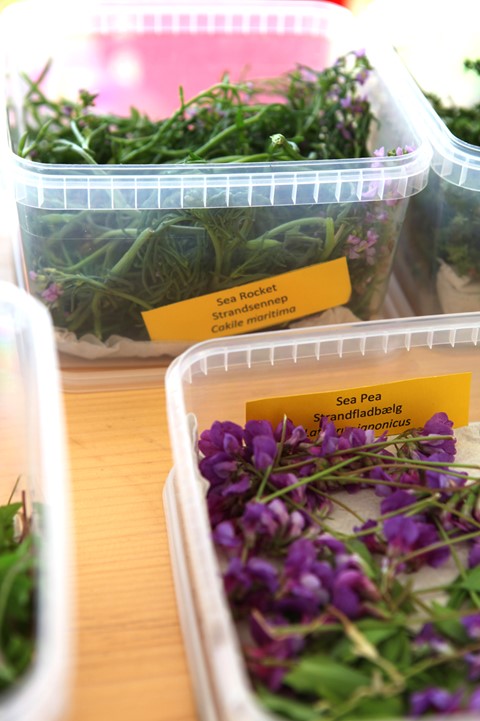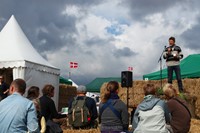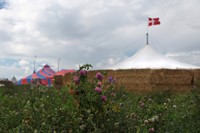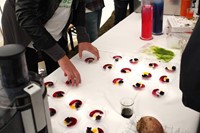A two day symposium dedicated to vegetables, held in a dimly-lit marquee on a muddy, ex-military island in the Copenhagen harbour – it hardly sounds like the type of thing you would plan for a holiday.
A two day symposium dedicated to vegetables, held in a dimly-lit marquee on a muddy, ex-military island in the Copenhagen harbour – it hardly sounds like the type of thing you would plan for a holiday. But the Planting Thoughts symposium, held as part of the inaugural Mad Foodcamp (mad=food in Danish), and organised by Noma’s René Redzepi, brought in some of the most interesting, experimental and influential chefs from around the globe.
Rarely, if ever, do chefs get the opportunity to gather en masse like this, but given the increasing influence that those in the culinary spotlight have – both good and bad – everyone was revelling in the opportunity to meet, discuss and get drunk while tackling issues of sustainability, responsible production, and just what is the best way to store leeks.
Having made a name for himself as one of the architects of the new Nordic Cuisine, and a fervent spokesperson for local and seasonal produce, Redzepi introduced his contemporaries – from local farmers to top rated chefs—for this, the first gathering of its kind.
One of the restaurants currently on everyone’s must-visit list is Mugaritz in Errenteria, Spain. Head chef and former El Bulli apprentice Andoni Aduriz told the audience about his relationship with local producers, the importance of managing ecosystems, and presented a live cooking demonstration that had the audience rapt. Similarly, legendary French chef Michel Bras prepared the gargouillou, one of the dishes that brought him fame nearly twenty years ago, to a standing ovation. Showing how food can act as a catalyst for social change, Peruvian chef Gaston Acurio – who many in Peru believe should run for president – introduced his pioneering programme to increase access to regional produce and reduce dependence on imports. Another highlight was Magnus Nilsson, whose Fäviken Magasinet in northern Sweden is inaccessible by car, while the menu is comprised solely of wild plants, produce he grows and animals he raises and slaughters himself. Closer to home, the head of British company Forager, Miles Irving, spoke about the wild flavours of England, and culinary attendees from London included roving duo The Young Turks, and chef-patron Christoffer Hruskova from North Road.
Outside the symposium tent a wider festival featured local producers enlightening the rain-sodden crowds about the importance of terroir and localism with samples, cooked meals and produce for sale including cheese, bread, cabbages, tomatoes, nearly forty different kinds of hay, and even asparagus beer. Unlike most food festivals, the focus at Mad was on small and sustainable, rather than big and moneyed.
It was a fitting introduction to our culinary venture to Copenhagen – which we will be reporting on over the next few weeks – and to a new (some would say, very old) way of thinking about food.
Text by Ananda Pellerin
Neil and Ananda attended the Mad Foodcamp from 27 – 28 August, 2011. To see the other articles in The Hunger's culinary tour of Copenhagen see here.
Ananda Pellerin is a London-based writer and Neil Wissink is a visual artist also based in London . More from The Hunger, and contact The Hunger here.



